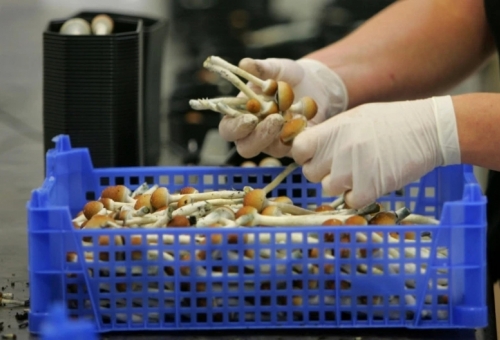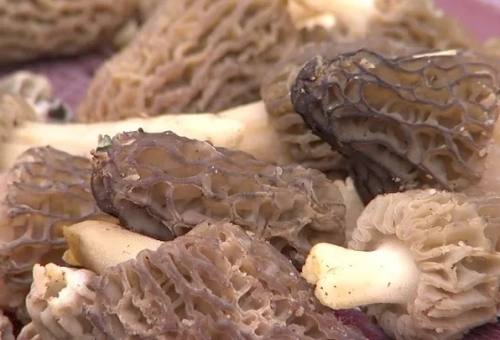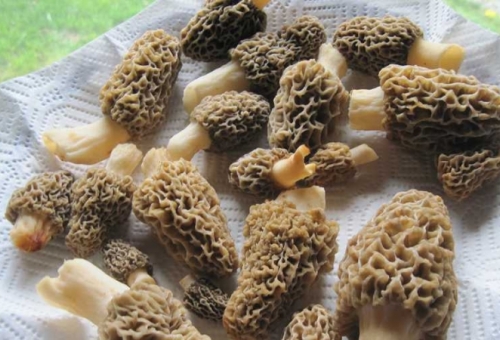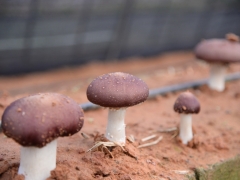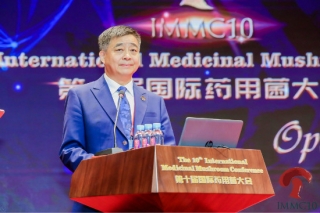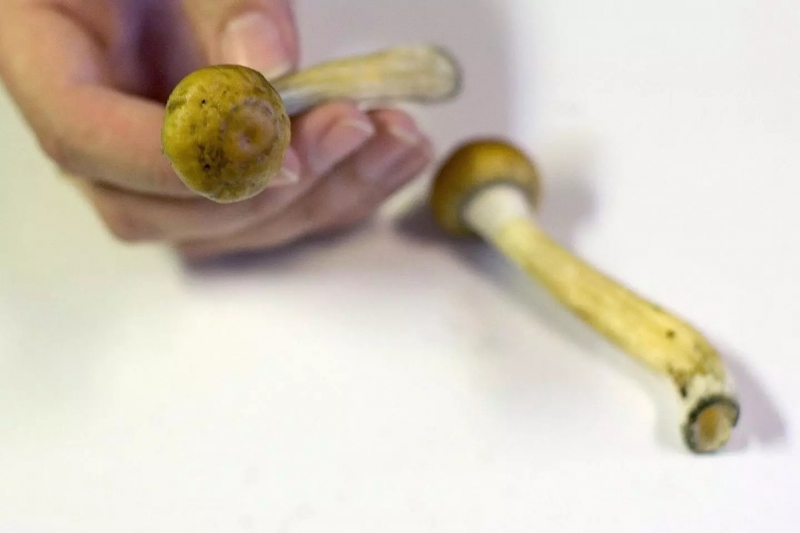
silocybin, the active ingredient in hallucinogenic mushrooms, should be removed from the "Schedule I" drug category if it passes the next stage of testing in clinical trials, experts have recommended.
According to the Controlled Substances Act of 1970, drugs are categorized based on criteria that take into account whether they accepted medical use, as well as their safety and potential for abuse. Schedule I drugs are those that are considered by the federal government to have no known medical potential.
But despite its classification, psilocybin—alongside other psychedelic substances—is increasingly being recognized by scientists as potentially effective treatments for a number of psychological disorders, such as addiction and depression. However, it must clear what are known as phase III clinical trials before the Food and Drug Administration (FDA) will even consider reclassifying it.
Recently, the FDA approved the use of psilocybin in a phase II trial—those which determine whether a drug has any biological effect at all—involving people with treatment-resistant depression.
If these trials are successful and psilocybin goes on to clear the next stage (phase III clinical trials)—which usually involve more participants and assess the effectiveness of the intervention—researchers from Johns Hopkins University recommend that the substance should be recategorized as a schedule IV drug, like prescription sleep aids, but with tighter controls.
The researchers came to their conclusions after reviewing studies examining the safety of hallucinogenic mushrooms for a paper published in the journal Neuropharmacology.
"We want to initiate the conversation now as to how to classify psilocybin to facilitate its path to the clinic and minimize logistical hurdles in the future," Matthew W. Johnson, associate professor of psychiatry and behavioral sciences at the Johns Hopkins University School of Medicine, said in a statement. "We expect these final clearance trials to take place in the next five years or so."
According to the researchers, studies involving animals and humans show that psilocybin has low potential for abuse and physical dependence. In experiments where rats push a lever to receive psilocybin, they don’t keep pushing it like they do for other drugs, like cocaine, alcohol, or heroin. And evidence in humans show that people tend to only report using the substance a few times in their life.
Meanwhile, safety studies show that psilocybin is frequently rated as one of the least harmful drugs to users and society as a whole. The substance also has the lowest potential for lethal overdose—in fact, there is no known overdose level. Significantly, there is also evidence to suggest that psilocybin may have significant therapeutic benefits.
“There are very promising results for substantially decreasing depression and anxiety in cancer patients undergoing substantial psychological distress,” Johnson told Newsweek. “Although more preliminary, there is also early evidence that that it can help with addictions including tobacco, alcohol, and cocaine addiction, as well as depression outside of cancer.”
“Many other psychiatric disorders need to be examined, because there is good reason to think that when cautiously applied, psilocybin may have broad capabilities as a behavior change facilitator,” he said. “It opens a therapeutic window of opportunity, in which people may have the ability to become less stuck to their normal patterns, be that thinking about yourself in a certain way as with depression, or taking substances.”
Despite these benefits, the researchers make it clear that the use of psilocybin is not without its risks—although these are greater in recreational rather than medical settings.
For example, psilocybin has the potential to instigate or making worse psychosis in those who have a psychotic disorder—like schizophrenia—or a predisposition for such disorders. Meanwhile, there is also a chance that users could engage in “dangerous behavior in response to acute anxiety, panic, confusion, often called a ‘bad trip’”, according to Johnson.
But these risks can be well managed if taken in the proper clinical setting with a trained individual, he says.
“If phase III research eventually meet the criteria for approving psilocybin as a medicine, the scientific evidence suggests that Schedule IV may be the appropriate classification, so long as additional risk mitigation strategies are used, including the provision that use needs to take place in a clinic, rather than at home—it's not ‘take two and call me in the morning,’” Johnson said.
Mushrooms containing psilocybin have been used for millennia for spiritual and medicinal purposes. The substance produces its effects by activating serotonin receptors in the brain and causing different brain regions to coordinate with each other, or "cross talk". This can lead to profound changes in consciousness and long-lasting alterations in a person's outlook.





